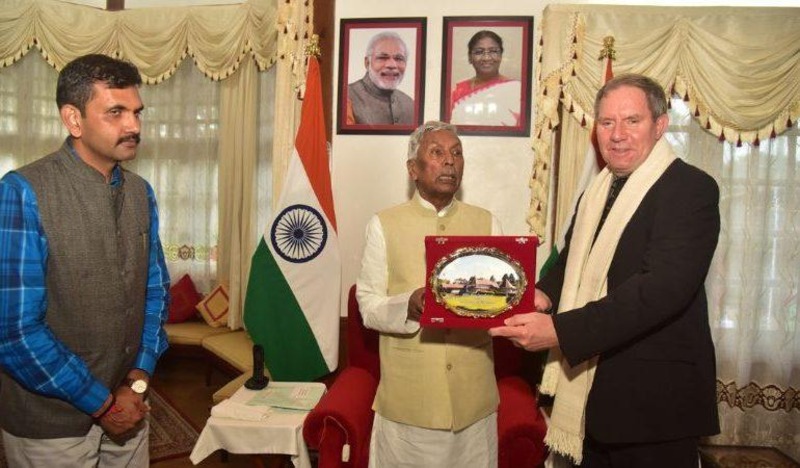 Sikkim
Sikkim
Nepali language recognition celebrated on 31st anniversary in Sikkim
Gangtok/IBNS: Sikkim observed the
also known as Nepali Language Recognition Day, as a state holiday for the first time, marking 31 years since the inclusion of the Nepali language in the 8th schedule of the Indian Constitution.
The journey toward the recognition of the Nepali language traces back to the proposal made during India's independence in 1947. Over time, this proposal gained momentum, with the Nepali-speaking community in Dehradun sparking what would become a language recognition revolution, reports EastMojo.
The discourse extended to the hills of Darjeeling and Kalimpong in West Bengal, as well as to Purvanchal and Assam, sustaining itself through the 1980s.
Dil Kumari Bhandari, a former Sikkim MP, and the late Nar Bahadur Bhandari, then Chief Minister, rekindled the language recognition movement in the 1990s. Their efforts brought the matter to the Indian Parliament, where it garnered unanimous support from both houses.
This led to its formal recognition and inclusion in the 8th schedule, solidified by the endorsement of the President of India on August 31, 1992.
Sikkim's Chief Minister, Prem Singh Golay, graced the celebrations in Gangtok and paid tribute to the instrumental role played by former Chief Minister Nar Bahadur Bhandari and ex-MP Dil Kumari Bhandari from Sikkim in spearheading the prolonged struggle for Nepali language recognition that culminated in 1992.
Reflecting on the historical journey, Chief Minister Golay remarked, "The road to recognition was a protracted one. Initiated by Anand Singh Thapa in 1956, it reached its fruition only in 1992. On August 31, 1992, the language's inclusion was endorsed by the President, following its passage through both houses of Parliament."
In recognition of the persistent efforts of former Chief Minister NB Bhandari and MP DK Bhandari, Chief Minister Golay lauded their resolute commitment to the language's recognition, even in the face of previous administrations' reluctance to acknowledge or mention their contributions.
He highlighted that the unity surrounding the Nepali language has only grown stronger, and under the current government's stewardship, the day has been officially declared a holiday.
Turning his attention to Nepali literature, Golay stressed its universal relevance, noting, "Our literary heritage is not confined to us; it resonates with a global audience, and it falls to the younger generation to inherit and perpetuate it.
Our literature should embrace all segments of the Nepali diaspora. Following its Constitutional recognition, we must chart the most effective course for its advancement."
The event saw the felicitation of numerous Nepali writers, literary figures, and contributors to the language, underscoring the cultural significance of this achievement.
Support Our Journalism
We cannot do without you.. your contribution supports unbiased journalism
IBNS is not driven by any ism- not wokeism, not racism, not skewed secularism, not hyper right-wing or left liberal ideals, nor by any hardline religious beliefs or hyper nationalism. We want to serve you good old objective news, as they are. We do not judge or preach. We let people decide for themselves. We only try to present factual and well-sourced news.







